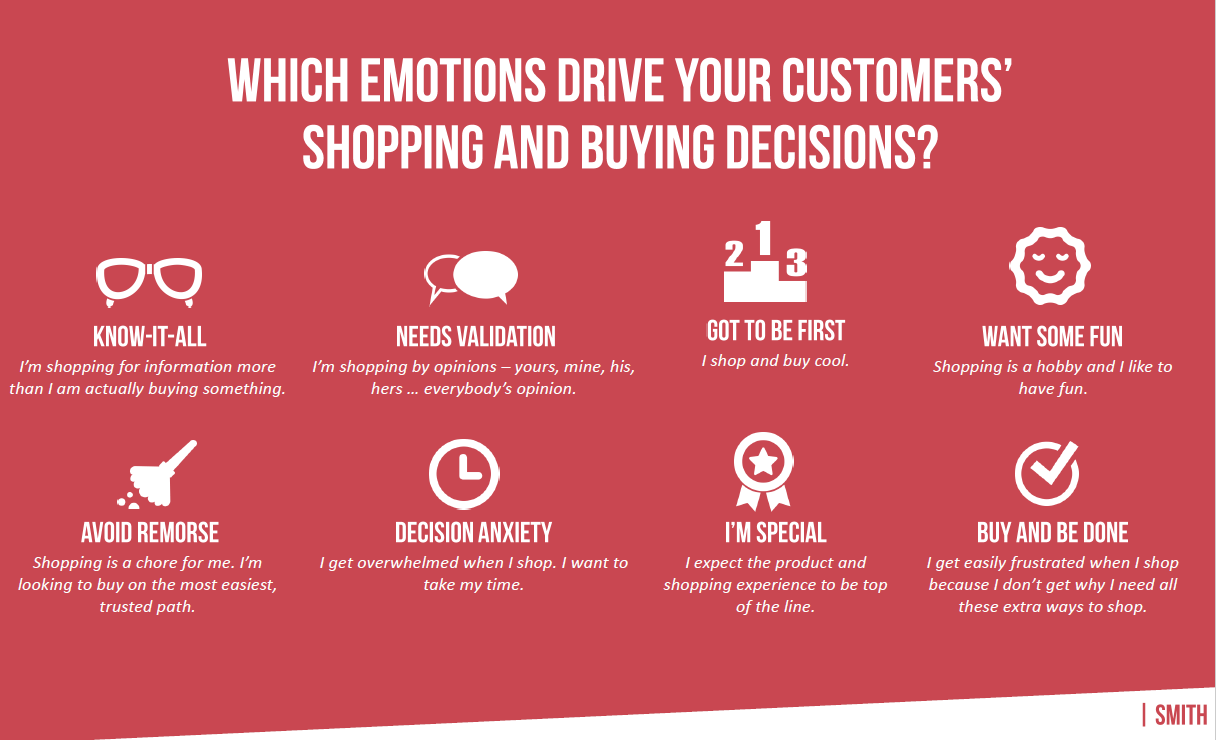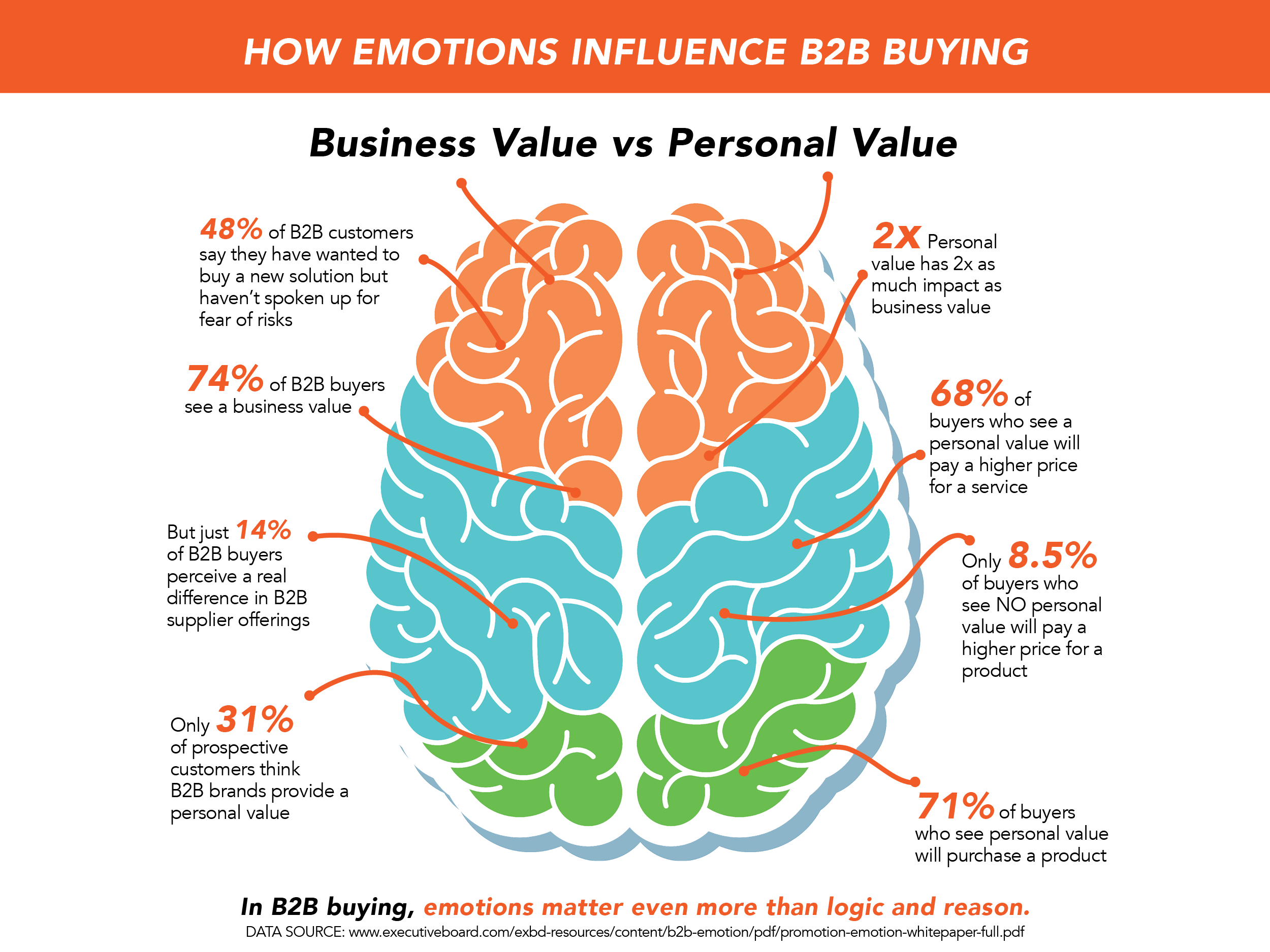DO EMOTIONS INFLUENCE WHAT WE BUY?
Neurologist António Damásio argues, in his book Descartes’ Error: Emotion, Reason, and the Human Brain, that emotion plays a vital role in almost all decisions we make. This includes buying decisions. Through his studies of patients whose emotional areas of the brain are damaged, he found that no matter how intelligent these patients were, they were unable to make even the simplest decisions because they didn’t know how they “felt” about their options.
WHY DO WE MAKE COMPLEX DECISIONS WITH OUR “EMOTIONAL BRAIN”?
Now, we’ve all been taught through our entire lives that we should do everything in our power not to make decisions emotionally. So, why would humans be hardwired to do so? The answer is this…due to the shortcomings of our short term memory, we can only process decisions with 2 or 3 variables rationally. However, our “emotional brain” (made up of the Amygdala, Prefrontal Cortex, Hippocampus, etc.) is able to process 3 to 4 million bits of data at a time. Our “emotional brains” are extremely powerful in comparison to our “rational and logical” brains. An interesting study that clearly illustrates this idea is the Iowa Gambling Task (IGT). The Iowa Gambling Task is widely used in research of cognition and emotion. A recent review listed more than 400 papers that made use of this paradigm.















